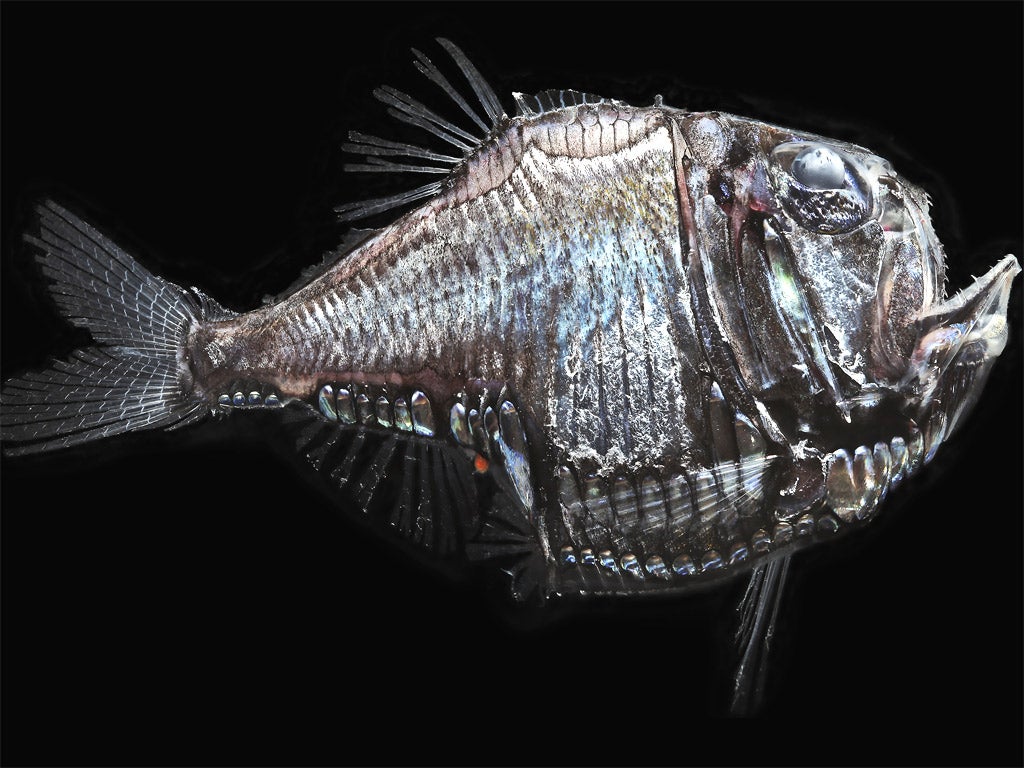
Your support helps us to tell the story
From reproductive rights to climate change to Big Tech, The Independent is on the ground when the story is developing. Whether it's investigating the financials of Elon Musk's pro-Trump PAC or producing our latest documentary, 'The A Word', which shines a light on the American women fighting for reproductive rights, we know how important it is to parse out the facts from the messaging.
At such a critical moment in US history, we need reporters on the ground. Your donation allows us to keep sending journalists to speak to both sides of the story.
The Independent is trusted by Americans across the entire political spectrum. And unlike many other quality news outlets, we choose not to lock Americans out of our reporting and analysis with paywalls. We believe quality journalism should be available to everyone, paid for by those who can afford it.
Your support makes all the difference.Up to a million new species of microscopic sea life have been observed for the first time, promising new revelations about the marine ecosystem that could revolutionise our understanding of climate change's impact on the world's oceans.
Each new lifeform was discovered by the crew of just one small research vessel, the Tara, inset, which has completed a two-and-a-half year, 70,000-mile expedition.
The unprecedented scientific journey gave a snapshot of life at the bottom of the oceanic food chain. More than 30,000 samples of sea water were taken from locations across the globe. The expedition's findings reveal the diversity and complexity of the tiny plankton that are a vital food source for fish and whales.
In total, 1.5 million species of marine micro-organisms were recorded – significantly more than were previously believed to exist. They range from creatures that are one centimetre in length, to tiny life-forms that are measured in billionths of a metre. Studying their distribution and life cycle could provide important insights into the impact of climate change on the oceans.
The migration or extinction of microscopic species sensitive to sea temperature changes or acidification could cause the collapse of marine food chains, as well as the international fisheries that depend on them, scientists have warned.
In a worrying indication of the reach of mankind's impact on the oceans, the Tara encountered high levels of plastic pollution in the Antarctic. In the first research to quantify the scale of the problem, scientists discovered that in a square kilometre of Antarctic sea, there could be as many as 50,000 plastic fragments.
Plastics that will remain in the sea for hundreds of thousands of years can get into the food chain, accumulating in the stomachs of fish, marine mammals and seabirds.
They produce toxins – organic molecules such as phenols and phthalates – which can poison marine life and could, via fisheries, find their way into our food. Dr Chris Bowler, scientific co-ordinator of the expedition, said the study provided a "health check" of the world's oceans.
"Nobody has ever done this on the scale that we have before," he said. "We will be analysing results in the lab for a number of years. The task now is to understand the physical and climactic constraints that have created these ecosystems." The Tara, which is a 36m-long schooner, is a comparatively small ship to have undertaken a scientific mission on this scale.
It is owned by the French fashion designer and environmental campaigner Agnès Troublé, who also provided half the funding for the €10m (£7.9m) expedition.
Join our commenting forum
Join thought-provoking conversations, follow other Independent readers and see their replies
Comments